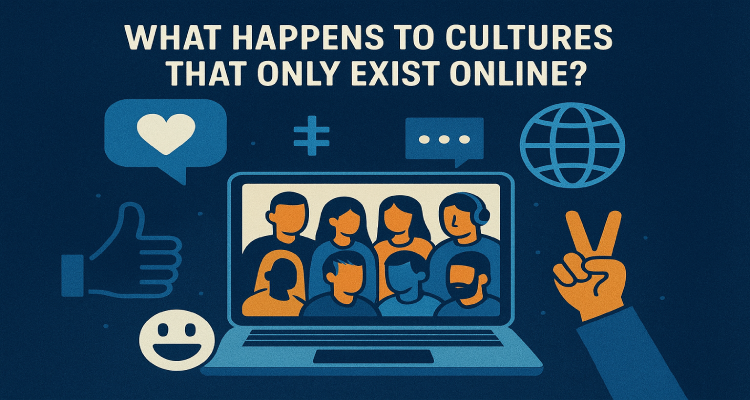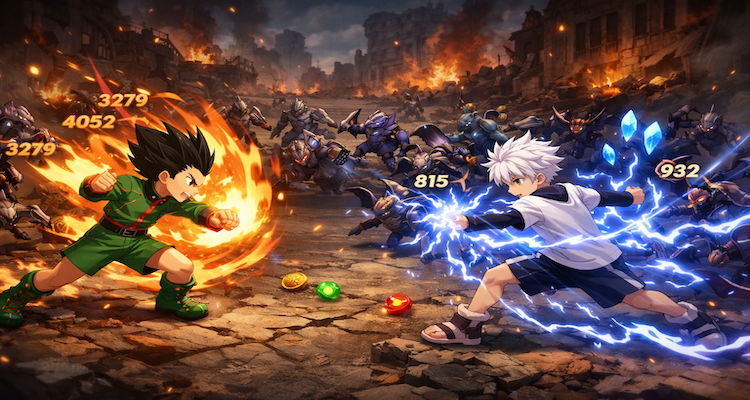What Happens to Cultures That Only Exist Online?

As digital subcultures evolve within social media and virtual spaces, experts question whether purely online cultures can sustain identity, meaning, and community in the long term.
1. Introduction: The Birthplace of Digital Tribes
In a world where virtual spaces are fast replacing public squares, entire cultures are emerging — not from geography or heritage, but from hashtags, memes, and shared algorithms. From fandoms to crypto communities, and from TikTok subcultures to gaming clans, these digital tribes form their own languages, rituals, and belief systems. But what happens when a culture exists solely online — without physical roots, face-to-face interactions, or real-world continuity?
As the internet becomes the dominant arena of social life, the question isn’t just about online behavior anymore — it’s about what defines a culture in the digital age.
2. Context & Background: From Chatrooms to Digital Civilizations
The rise of online cultures began quietly in the late 1990s with forums and chatrooms — early spaces where people gathered around niche interests. Over time, this evolved into complex ecosystems: Reddit communities, K-pop fandoms, gamer guilds, crypto networks, and AI art movements.
Sociologists describe these as “post-geographic cultures” — societies built not on shared land or ancestry, but on shared data and emotion. Platforms like Discord, Twitch, and X (formerly Twitter) serve as digital homelands where millions gather daily.
But digital anthropology now raises a concern: when these spaces collapse — due to bans, algorithmic changes, or fading interest — entire cultures risk extinction overnight.
3. Main Developments: Fragility of Digital Existence
In 2024, when Reddit purged several major forums, thousands of microcultures lost their “homes.” Similarly, when X modified its recommendation systems, several activist and artistic communities fragmented. The same has happened within gaming universes — when servers shut down, players lose not just data, but cultural identity built over years.
Unlike ancient civilizations that leave behind ruins and artifacts, online cultures vanish with a click. As researcher Dr. Leena Kravitz from the University of Amsterdam notes, “Digital cultures are ephemeral by design. Their memory depends on servers — not on storytellers.”
For digital natives, this fragility is alarming. Memes, slang, aesthetics, and moral codes that define these cultures often disappear into the algorithmic void, leaving historians of the future with little to study.
4. Expert Insight & Public Reaction: The Search for Digital Permanence
Digital anthropologist Dr. Ahmed Malik believes that online cultures “mirror the intensity of ancient tribalism, but without geography or timekeeping.” He argues that social media users don’t just consume culture — they co-create it daily, blurring the line between art and identity.
However, not everyone sees this evolution positively. Critics warn that algorithm-driven cultures lack continuity and accountability. They emerge fast, burn bright, and vanish — leaving psychological and cultural confusion in their wake.
Many internet users also express nostalgia for the early web — when communities were smaller, slower, and more human. “Now everything’s optimized for engagement,” says Reddit user and community moderator @ElderByte. “Our culture feels disposable — trending today, gone tomorrow.”
5. Impact & Implications: Identity in the Algorithm Age
The future of online culture raises profound questions about memory, authenticity, and belonging.
- Memory: Without archives or digital preservation, countless creative movements risk being lost forever.
- Authenticity: As AI-generated content blurs originality, can cultures built on algorithms truly reflect human creativity?
- Belonging: The hyper-fragmentation of online communities may isolate individuals rather than unify them.
Yet, there’s hope. Projects like “Internet Archive,” “Digital Folklore Museum,” and blockchain-based cultural preservation efforts are working to store these ephemeral artifacts. Even game developers are experimenting with open-source legacy servers to keep digital civilizations alive.
The challenge is not to stop evolution — but to build a memory system for cyberspace before too much disappears.
6. Conclusion: When the Internet Becomes the World
As the line between digital and physical life blurs, online cultures are no longer “alternative realities” — they are the new normal. But cultures that live solely online must learn to preserve their essence beyond algorithms.
If civilizations once left behind stone tablets and monuments, perhaps the civilizations of the internet age will be remembered through code, memes, and archived chats. The digital world, after all, is not devoid of culture — it’s where humanity’s next great story is being written, byte by byte.
Disclaimer:This article is based on journalistic interpretation and expert perspectives. It does not represent the views of any specific organization or entity.









